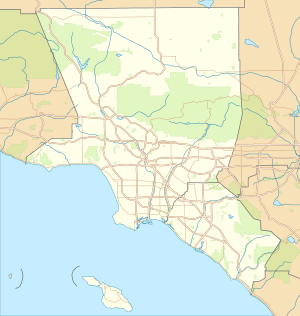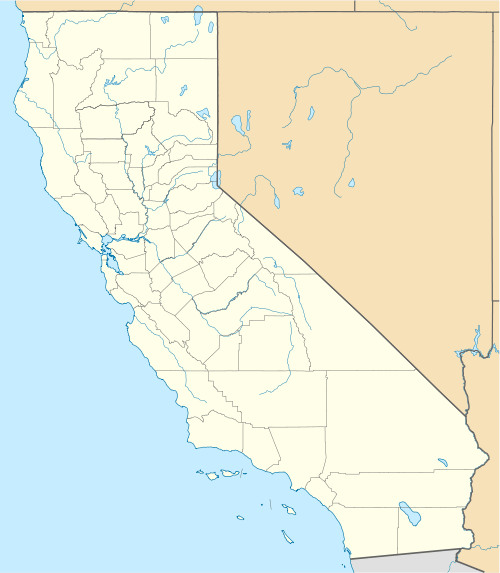Park Place-Arroyo Terrace Historic District
|
Park Place-Arroyo Terrace Historic District | |
|
Duncan-Irwin House at 240 N. Grand Ave. | |
   | |
| Location | 368-440 Arroyo Terrace, 200-240 N. Grand Ave., 201-239 N. Orange Grove Blvd., Pasadena, California |
|---|---|
| Coordinates | 34°8′58″N 118°9′44″W / 34.14944°N 118.16222°WCoordinates: 34°8′58″N 118°9′44″W / 34.14944°N 118.16222°W |
| Area | 7.5 acres (3.0 ha) |
| Architectural style | Arts and Crafts Movement |
| MPS | Residential Architecture of Pasadena: Influence of the Arts and Crafts Movement MPS |
| NRHP Reference # | 04000324[1] |
| Added to NRHP | June 29, 2007 |
The Park Place-Arroyo Terrace Historic District is a residential historic district located in northwest Pasadena, California. The district includes eleven contributing houses built from 1902 to 1912. Most of the houses in the district were influenced by the Arts and Crafts Movement, which was popular in Pasadena in the early 20th century; particular styles in the district include the American Craftsman house, the Craftsman bungalow, the Colonial Revival house, and the Prairie School house. Prominent Pasadena architects Charles and Henry Greene designed seven of the district's houses; the district is the most concentrated collection of their works in Pasadena. Two other noted Craftsman architects, Myron Hunt and Sylvanus Marston, also designed homes in the district, including Hunt's own residence.[2]
The district was added to the National Register of Historic Places on June 29, 2007.[1]
References
- 1 2 National Park Service (2010-07-09). "National Register Information System". National Register of Historic Places. National Park Service.
- ↑ McAvoy, Christy Johnson (August 17, 2001). "National Register of Historic Places Registration Form: Park Place/Arroyo Terrace Historic District" (PDF). National Park Service. Retrieved March 20, 2015. Accompanied by photos.
| Wikimedia Commons has media related to Park Place-Arroyo Terrace Historic District. |

